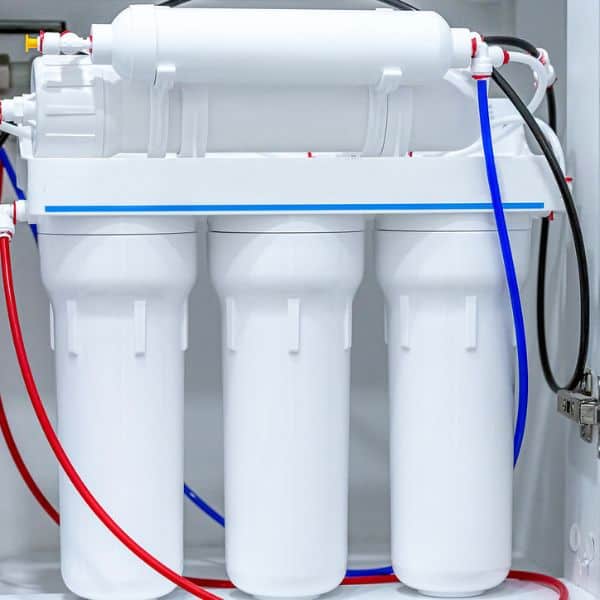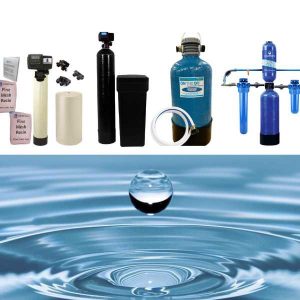What is Reverse Osmosis?
Reverse osmosis is a process that can be used to purify water. This type of water filtration technology has been used for many years and is becoming increasingly popular for home use due to its effectiveness in removing bacteria, heavy metals, and other pollutants from drinking water.
It uses pressure to force water molecules through a semipermeable membrane. Reverse osmosis membrane allows pure water molecules to pass through and rejects atoms and molecules of contaminants. The contaminants are left on one side that makes up the brine and is flushed down the drain. The clean water goes to the RO storage tank waiting for consumption.
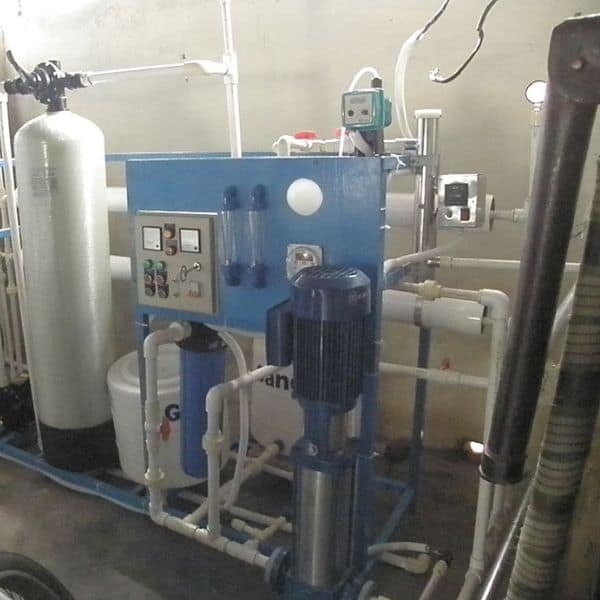
Furthermore, reverse osmosis doesn’t require chemicals and energy so it’s an economical way to purify your tap water.
Do Reverse Osmosis Systems Really Work?
Does the RO system really works or is it bad for your health? The quick answer is yes, a reverse osmosis water filter works perfectly and it is not bad for your health. It is also an economical option as compared to bottled water.
The RO membrane alone does not remove all the contaminants in water. For this reason, RO systems incorporate sediment and carbon filters. Sediment filters remove larger particulates such as sand, silt, and rust. Carbon filters, on the other hand, eliminate chlorine, VOCs, hydrogen sulfide, and some pesticides.
The RO membranes are responsible for removing heavy metals, pharmaceuticals, and microorganisms as well as reducing TDS (total dissolved solids). The thin polyamide-based sheet does not allow contaminants bigger than its 0.0001 micropore size. This is why even the smallest viruses can be filtered out.
The RO membrane also rejects monovalent ions or atoms with a valency of one such as sodium and potassium. These elements along with healthy trace minerals are removed in an RO system delivering pure water free of impurities.
An RO system with different filtration stages can remove 90-99% of contaminants in water.
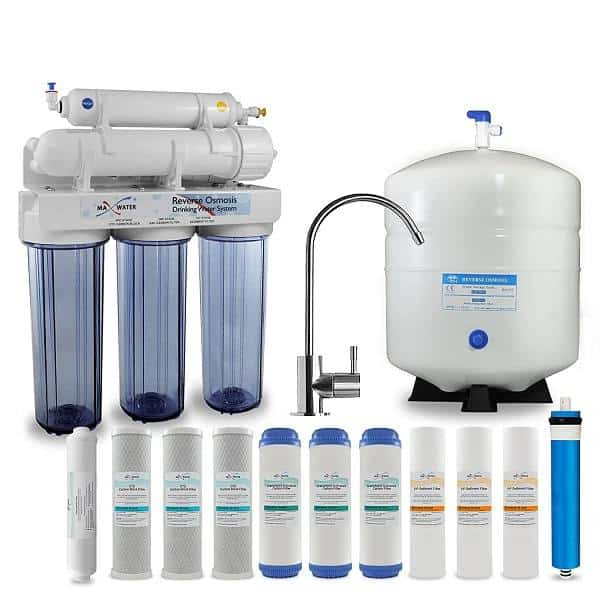
The Water Contaminants That RO Removes
Aside from the RO membrane, RO systems incorporate sediment and carbon filters to remove the contaminants that can harm the RO membrane. These filters do the job more effectively than any other type of filter.
So, reverse osmosis filters remove or reduce the following contaminants:
- Remove 98% Chlorine
- Remove 82-92% Flouride
- Remove 90-99% of Heavy metals ( e,g, Arsenic, Mercury, Chromium, Lead, Cadmium)
- Remove 99% of pesticides ( e.g. Atrazine, Endrine, Heptachlor)
- Remove 90-99% of VOCs (e.g. Trihalomethane, PCE. MTBE)
- Remove 99% of pathogenic microorganisms (e.g. bacteria, viruses, protozoans)
- Remove 99% of pharmaceuticals
- Remove 83-92% of nitrates
- Remove 93-99% of sulfates
- Remove 90% of PFOA and PFOS
- Remove 99% of asbestos
- Remove 90-95% of TDS
- Remove 65% of Hydrogen Sulfide
Should I Get an RO System to Get Clean Drinking Water at Home?
When it comes to drinking water, many people are looking for ways to get the cleanest and purest water available. A whole house reverse osmosis filter is a popular choice for those wanting to enjoy great-tasting and healthy drinking water at home.
But before you decide if reverse osmosis water is right for you, it’s important to understand the benefits of RO.
Cleaner and Safer Water
Most communities are supplied with treated city water. This means most contaminants are removed and are safe for consumption. However, in times when there is a broken water line or equipment failure at water treatment, contaminants could leak into the water supply. Here, you need a reliable water filter to remove those contaminants.
Well water is not covered by your municipal water supplier and therefore not treated. Hence, it is susceptible to contaminants like heavy metals, microorganisms, nitrates, and other contaminants due to surface water seepage and underground movement.
Needless to say, make sure to check the contaminants present in your well water so you know what those that need to be addressed by your RO system.
Healthier Water
The health benefits of drinking RO water are numerous; it helps reduce toxins from entering our bodies which can lead to better overall health. In addition, because it’s free from chlorine, fluoride, and other pollutants found in public drinking sources, it’s great for people with sensitive stomachs or who suffer from allergies.
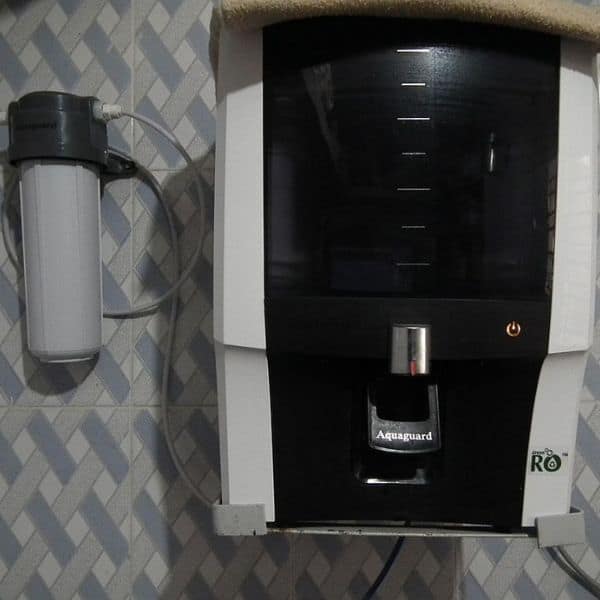
Improved Taste
Another concern is the use of chlorine in many municipal water supplies. Chlorine is used to kill bacteria and harmful microorganisms. However, chlorine affects the aesthetic quality of your drinking water. Needless to say, eliminating it will greatly improve the palatability of your drinking water and an RO system will effectively do the job.
Is RO Water Good for You?
Water contaminants account for numerous diseases caused by harmful microorganisms. Overexposure to heavy metals and toxic substances also causes serious health effects. Since RO water is free from most impurities and contaminants, they are considered safe and healthy for public consumption.
Overall, reverse osmosis removes contaminants from drinking water and this water is good for your health. However, if you are concerned with the healthy trace minerals removed by a reverse osmosis RO system, consider remineralizing your RO water.
Conclusion
So, do reverse osmosis water filters really work? Yes, reverse osmosis systems are an effective solution for improving water quality. These systems can bring many benefits such as improved taste, odor, and clarity of the water. They also offer the peace of mind that your drinking water is free from contaminants and bacteria. If you are considering a reverse osmosis system for your home, it can be a wise decision.
